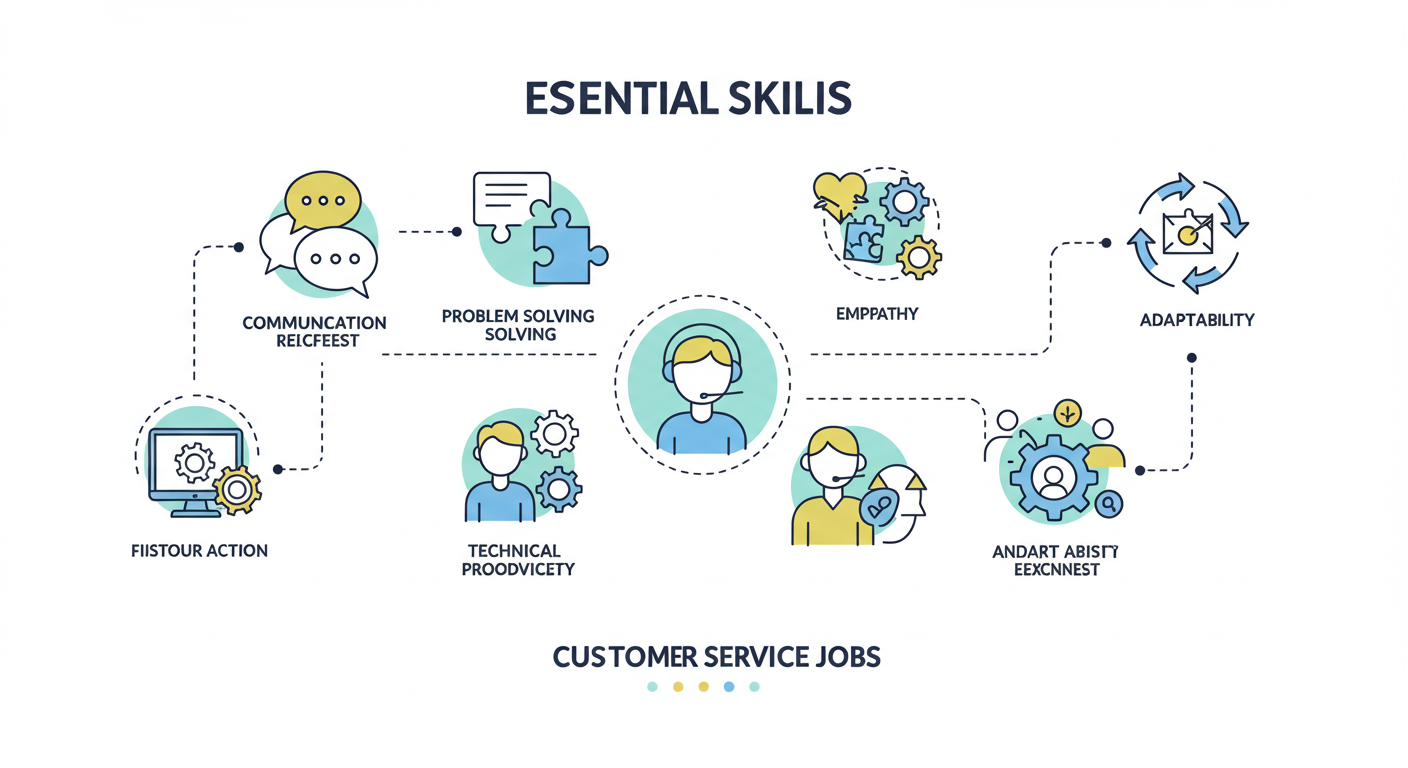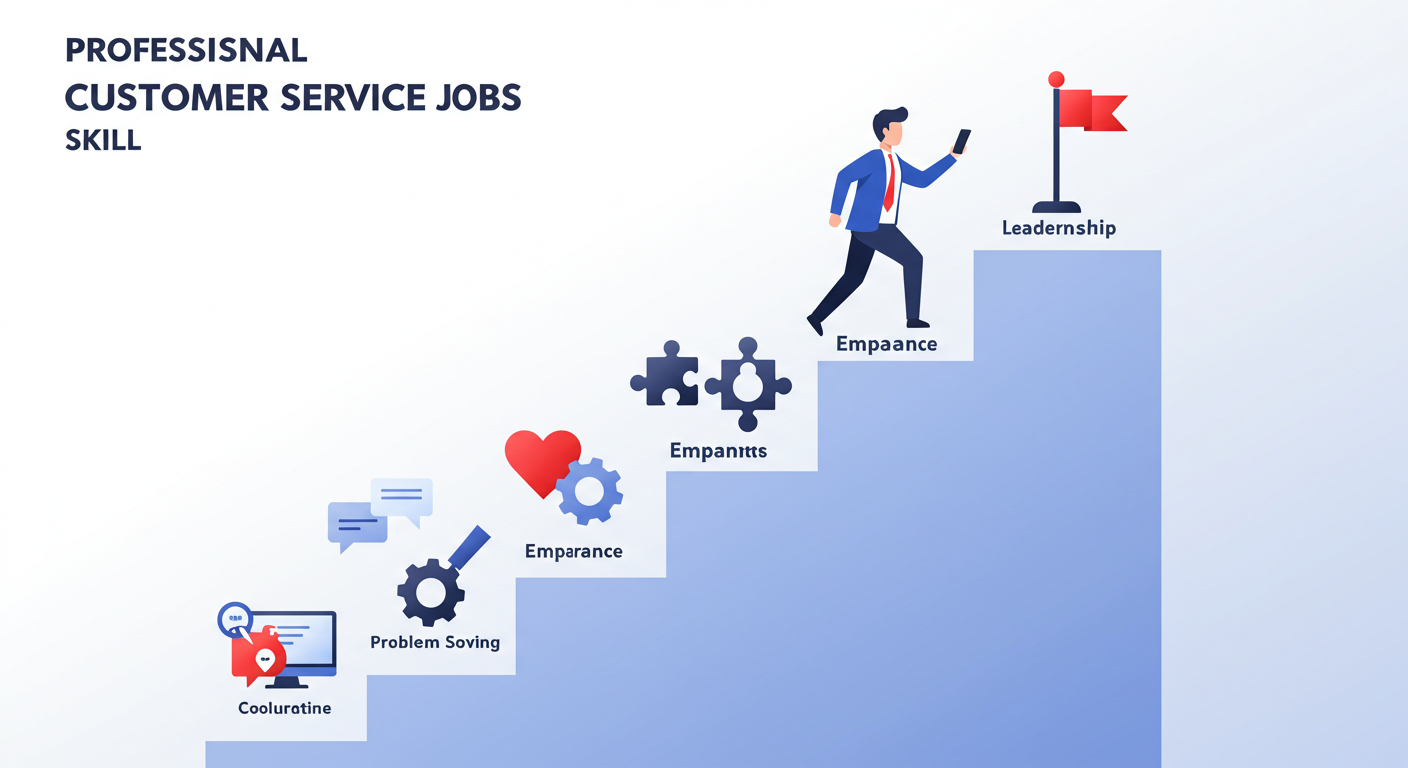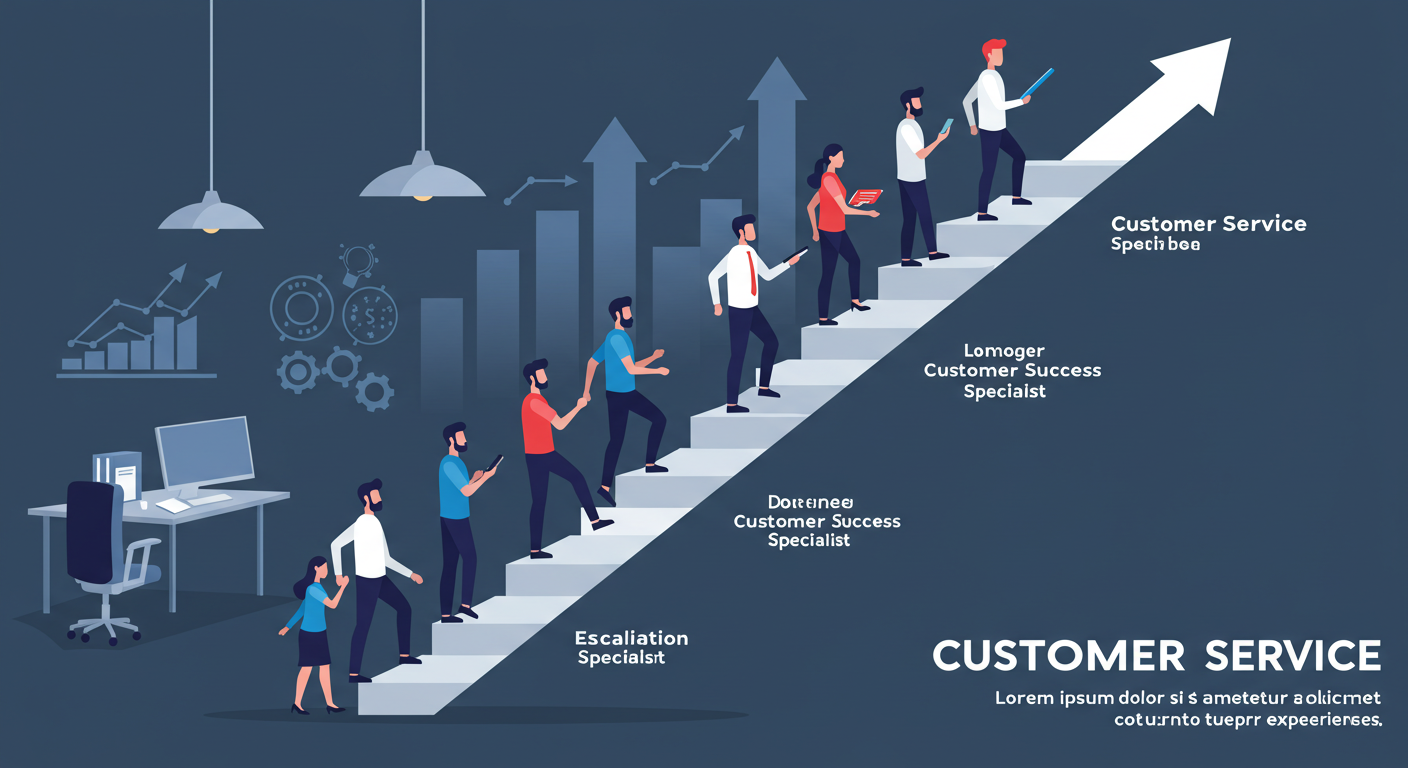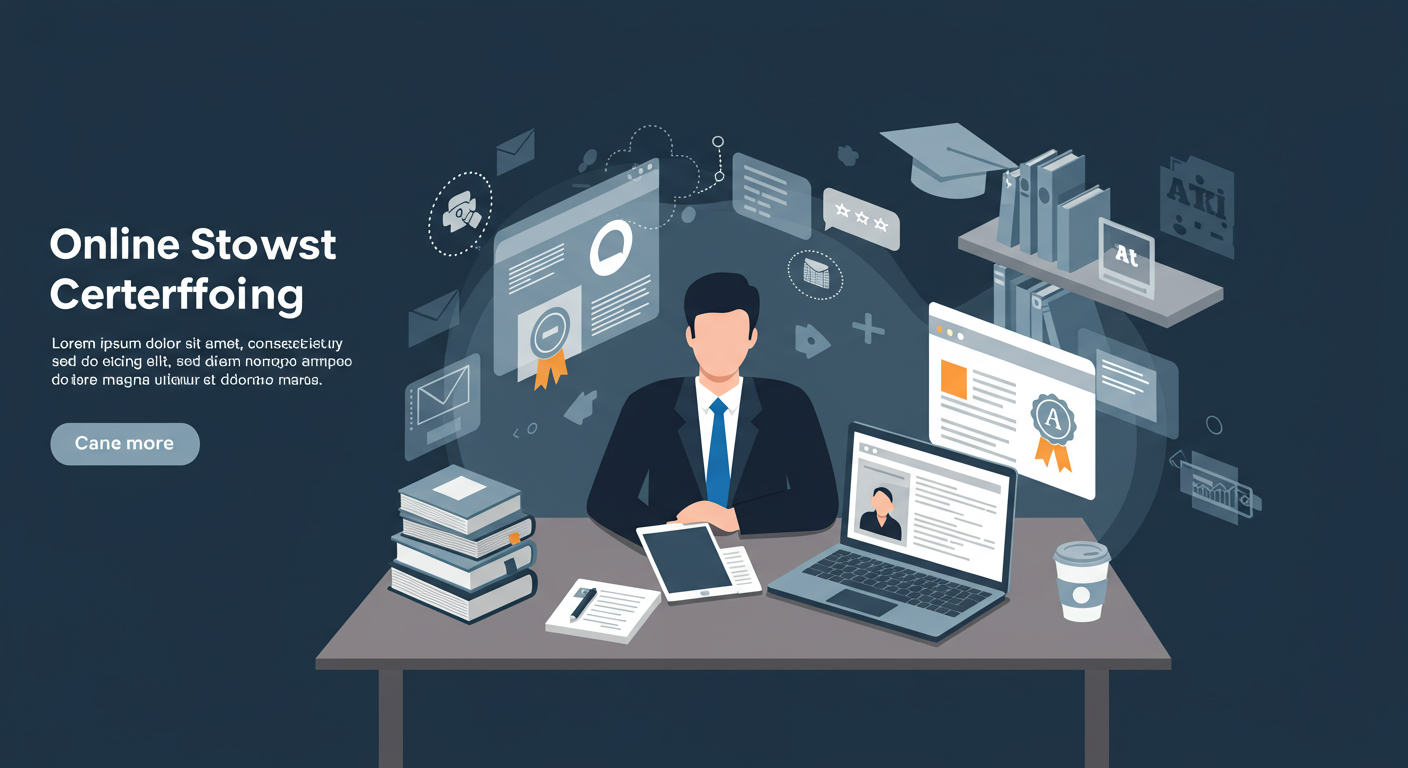Customer service jobs are an integral part of ensuring businesses thrive and maintain strong relationships with their customers. Whether it’s answering queries, resolving concerns, or fostering loyalty, customer service professionals are the backbone of exceptional consumer experiences. This article explores the significance of customer service jobs in the business ecosystem, the roles professionals in this field perform, the critical skills they need to succeed, and the countless opportunities for career growth in customer service.
To begin, here’s a summary table highlighting what makes customer service careers essential and desirable:
| Aspect | Key Points |
| Roles | Customer service representative, call center specialist, account manager, and escalation specialist |
| Skills | Strong communication, problem-solving, empathy, technical proficiency, and adaptability |
| Career Growth | Opportunities for advancement into senior roles, team leadership, or even managerial and executive-level positions |
Customer service jobs are much more than just responding to customer concerns—they are about creating meaningful connections, addressing challenges with efficiency, and building trust through excellent service.
The Importance of Customer Service Jobs in the Business World
When you think of a positive interaction with a business, it’s often the result of exceptional customer service. A single interaction can shape how customers perceive a brand, which directly impacts loyalty, word-of-mouth marketing, and overall revenue. For organizations, dedicated customer service professionals aren’t just employees—they are brand ambassadors who provide the human element essential for success.
The Role of Customer Service in Building Trust
Building trust is a fundamental component of customer service jobs. Whether riding the wave of positive feedback or handling a disgruntled customer’s concerns, the professionalism of customer service representatives determines the overall sentiment associated with the brand. For instance, companies with top-tier customer service teams often report higher retention rates, indicating how pivotal their efforts are in building long-term relationships.
Boosting Business Revenue
According to recent studies, companies that prioritize customer service see financial gains significantly outpacing those that do not. Happy customers are more likely to become repeat buyers, increasing the customer lifetime value. Furthermore, these satisfied customers may refer others, resulting in organic growth for the business.
Key Roles in Customer Service
Customer service exists in many forms and responsibilities, covering a wide range of roles and situations. Professionals in customer support are responsible for directly interacting with customers, troubleshooting issues, and ensuring satisfaction at every touchpoint. Here’s an overview of the main positions available in this field:
Customer Service Representative
This is perhaps the most recognizable role in the industry. Customer service representatives often handle questions via phone calls, emails, or live chats. They provide solutions to customer inquiries, ranging from product information to troubleshooting complaints. These professionals must possess communication skills, problem-solving abilities, and a keen sense of being customer-oriented to excel in their roles.
Call Center Specialist
Call center specialists focus on high-volume communication with customers. Whether taking inbound calls to resolve inquiries or reaching out proactively for customer feedback, their role demands excellent time management and the ability to handle pressure. Success within this area often leads to career advancements into senior-level positions.
Escalation Specialist
When situations become too complex for initial representatives to handle, escalation specialists step in to provide more advanced solutions. They resolve highly technical or sensitive issues, ensuring customers feel valued and supported. Often, these specialists have an in-depth understanding of CRM system capabilities and technical proficiency, which allows them to manage escalated accounts effectively.
Account Manager
Beyond handling individual inquiries, account managers are focused on long-term client satisfaction and loyalty. They act as strategic relationship managers, overseeing accounts and ensuring that client needs—both immediate and long-term—are met.
Essential Skills for Success

The ability to thrive in customer service jobs hinges on having the right blend of technical and interpersonal skills. Professionals must be empathetic, technologically savvy, and adaptable to ever-changing customer expectations. Below are some key skills that make a successful customer service professional:
Communication Skills
The ability to articulate information simply and effectively is central to resolving customer inquiries. Whether explaining product details or calming an upset customer, precise communication ensures mutual understanding and faster problem resolution.
Empathy and Patience
Walking a mile in someone else’s shoes is invaluable in customer interaction. Empathy allows professionals to connect on a genuine level, fostering trust and goodwill even in challenging scenarios.
Problem-Solving Abilities
Efficiently identifying the root cause of problems and offering actionable solutions is critical. Problem-solving requires analytical thinking and the agility to adapt approaches based on customer feedback.
Technical Proficiency
Nowadays, almost all customer service roles involve the use of specialized technology, such as CRM systems and help desk software. Proficiency in these tools reduces response times and ensures accuracy when assisting customers.
Career Growth Prospects in Customer Service Jobs
One of the most exciting aspects of customer service jobs lies in their career trajectory. Entry-level positions are typically available to candidates with minimal prior experience, offering a great starting point for those eager to grow. Over time, professionals can move into mid-level or advanced roles.
Supporting Career Progression
- Entry-Level Roles:
Start as a customer service associate or a help desk operative.
- Mid-Level Roles:
Advance to team leader or regional call center manager.
- Executive Leadership:
Transition to roles such as director of customer experience or VP of customer success.
Supportive companies often offer certifications and training programs that align with their internal organizational structure. For example, earning credentials like the Certified Customer Service Professional (CCSP) enhances credibility and demonstrates dedication to the profession.
The starting point for understanding customer service jobs lies in recognizing how vital they are for both businesses and customers. Beyond regular responsibilities, these roles shape customer perception, solidify trust, and even influence profitability. By mastering the necessary skills and seizing opportunities for growth, professionals can unlock a rewarding career path in this dynamic field.
Skills Required for Customer Service Jobs

Success in customer service jobs hinges on a particular set of skills that enable professionals to provide effective solutions, build strong relationships, and ultimately contribute to the larger success of a business. These skills not only ensure day-to-day efficiency but also set the foundation for eventual career growth within the field. From engaging communication and sharp problem-solving abilities to showing empathy and leveraging technical tools, mastering these traits can pave the way to a fulfilling career in customer service.
Here’s an exploration of the essential skills for customer service jobs, their significance, and how they fuel professional growth.
Understanding the Core Skills in Customer Service Jobs
Customer service jobs require professionals to interface directly with customers, often under pressure, all while maintaining a positive and proactive attitude. These roles demand a well-rounded skill set. Below, we will break down the critical capabilities that every customer service professional should hone.
1. Communication Skills
At the heart of all customer service jobs is the ability to communicate effectively. Whether interacting in person, over the phone, via email, or through chat channels, customer service professionals must convey information clearly, confidently, and courteously.
Why Are Communication Skills Important?
- Clarity of Expression ensures that customers understand the information provided, minimizing confusion and frustration.
- Active Listening allows professionals to grasp the full context of a customer’s inquiry or issue, leading to more accurate and efficient resolutions.
- Conflict Management relies on choosing the right words to de-escalate tense situations and provide reassurance.
How Communication Boosts Career Growth
Great communicators in customer service often find that their ability to engage with customers resonates with employers. Strong communication skills are a prerequisite for supervisory roles, training positions, and managerial responsibilities, allowing professionals to move steadily up the career ladder.
2. Problem-Solving Abilities
Problem-solving is critical in customer service jobs because customers often approach the company during a time of confusion, needing assistance, or dealing with issues. A professional’s ability to evaluate the problem, generate realistic solutions, and execute the appropriate action can significantly impact customer satisfaction.
Key Elements of Problem-Solving in Customer Service
- Root Cause Analysis: Understanding the underlying issue before providing a solution.
- Innovation and Adaptability: Thinking outside of the box to address unique customer challenges.
- Decision-Making: Balancing customer expectations with company policies to arrive at feasible solutions.
Impact on Career Growth
Consistently resolving problems efficiently portrays an employee as dependable and capable. This reliability can lead to promotions or lateral moves into specialized roles, such as customer experience analyst or escalation specialist.
3. Empathy in Customer Interactions
The Empathy, or the ability to understand a customer’s feelings and perspective, is one of the defining traits of excellent customer service. Empathy builds trust, reinforces loyalty, and ensures that customers feel respected and valued during each interaction.
Demonstrating Empathy in Customer Service
- Acknowledging Concerns: Validating a customer’s feelings instead of being dismissive.
- Personalization: Using the customer’s name and referencing specific details in the conversation.
- Patience: Taking the time to listen without rushing to conclude.
Why Empathy Matters
Empathy ensures longer-term relationships between customers and the organization, fostering retention and word-of-mouth recommendations. Professionally, those who exhibit empathy often transition to roles that deal with higher-stakes customer relations, such as account management or VIP client handling.
4. Technical Proficiency
Modern customer service jobs require professionals to master a variety of software tools and platforms designed to streamline customer interactions. From chatbots and CRM (Customer Relationship Management) systems to helpdesk software, technical skills are indispensable.
Examples of Necessary Technical Skills
- Proficient Use of CRM Systems like Salesforce or Zendesk to manage client interactions, track consumer history, and improve personalization.
- Familiarity with Communication Tools such as live chat platforms, email management systems, or social media dashboards.
- Troubleshooting Knowledge for navigating basic technical issues that clients might face with digital products or platforms.
Contribution to Career Growth
Being adept at utilizing modern technical tools often gives professionals a competitive edge when applying for higher-paying roles, such as technical support lead or customer service training coordinator.
Combining Skills for Professional Advancement

The interplay between the aforementioned skills – communication, problem-solving, empathy, and technical proficiency – is what sets top-performing customer service professionals apart. This integrated skill set not only dictates effective customer relations but also solidifies career advancement opportunities.
Developing Leadership Skills
To further climb the ladder in customer service jobs, soft skills such as team collaboration, strategic thinking, and time management also become vital. Supervisors, for instance, must balance managing a team with addressing escalated customer interactions.
Certifications for Skill Validation
Earning certifications can be instrumental in solidifying these skills. For instance:
- Certified Customer Service Professional (CCSP) recognizes advanced expertise in customer interaction techniques.
- Salesforce Certification demonstrates proficiency in CRM tools.
- Conflict Resolution Certifications reflect strong capabilities for handling difficult interpersonal scenarios.F
Excelling in customer service jobs requires more than a helpful attitude. Mastery of skills like communication, problem-solving, empathy, and technical prowess is crucial for resolving customer concerns and fostering positive experiences. Strong skill sets don’t simply lead to happy customers, they are the hallmarks of professionals on the fast track to managerial and senior-level positions. Focusing on these abilities while continually expanding knowledge is the key to lasting success in this dynamic career field.
Career Growth Opportunities in Customer Service Jobs
If you’re considering a career in customer service jobs, you’ll be glad to know the field offers immense potential for growth. From foundational roles to senior leadership positions, this profession provides an array of opportunities to enhance skills, take on increased responsibilities, and advance to higher levels. The field isn’t just about solving customer issues; it’s about developing valuable skills, demonstrating professionalism, and seeking continuous improvement.
Here’s a detailed guide on how you can chart your pathway to success in customer service jobs.
Starting Points in Customer Service Careers
Every successful career begins with a solid foundation, and customer service jobs are no exception. Entry-level positions in this field are accessible, making them an excellent starting point for individuals new to the working world or considering a career change.
Common Entry-Level Roles
Customer Service Representative
This role is ideal for those who enjoy problem-solving and connecting with people. Customer service representatives handle inquiries, provide information, and manage complaints, making them the face of the company. Communication skills and a focus on customer-oriented solutions are critical here.
Call Center Specialist
Call center specialists often manage a high volume of customer calls, addressing various needs like billing questions, technical support, or product assistance. Success in this role depends on excellent multitasking and problem-solving abilities.
Help Desk Associate
Focused more on technical support, help desk associates guide customers through troubleshooting procedures and resolve issues related to specific products or systems. Technical proficiency and patience are key skills for this role.
Opportunities for Learning in Entry-Level Roles
The foundational skills learned in these roles, such as empathy, team collaboration, and handling inquiries lay the groundwork for career advancement. Professionals learn how to manage diverse customer demands while gaining insider knowledge about products, services, and company metrics.
Pathways to Senior Positions

With experience, professionals in customer service jobs can climb the career ladder by taking on more specialized roles or moving into managerial tracks.
Advancing to Senior-Level Roles
After gaining sufficient experience in entry-level positions, many individuals progress to senior roles, which come with more responsibilities and opportunities for decision-making:
Senior Customer Service Representative
Senior representatives provide guidance to their junior counterparts on complex customer issues. They also handle escalated cases, demonstrating both expertise and leadership potential.
Customer Success Specialist
This position involves working closely with clients to ensure long-term satisfaction, retention, and loyalty. Strong abilities in team collaboration and crafting proactive solutions are essential here.
Escalation Specialist
Escalation specialists resolve high-priority customer issues that can’t be addressed at the basic level. High emotional intelligence, customer feedback processing, and crisis management skills are critical for this role.
Stepping into Managerial Roles
For professionals seeking greater leadership opportunities in customer service jobs, managerial positions provide an excellent option. These roles require a combination of people management, strategic thinking, and a keen focus on organizational goals.
Customer Service Manager
This role involves supervising a team of representatives, setting performance benchmarks, and evaluating team productivity. Managers also monitor customer feedback to implement actionable improvements.
Call Center Manager
Call center managers oversee operations for teams that handle inbound and outbound calls. Their responsibilities include managing workflows, establishing employee training programs, and driving efficiency.
Director of Customer Experience
At an executive level, this position focuses on long-term strategies to enhance customer retention and improve service standards across the organization. Knowledge of CRM systems, data analytics, and customer behavior trends is vital at this level.
Skills for Advancement
Success in advancing upward requires honing core skills acquired during earlier roles. Here’s what to focus on:
Leadership Abilities
Demonstrating initiative, motivating teams, and setting a positive example are critical facets of leadership development.
Strategic Thinking
Senior roles demand forward planning and the ability to align customer support efforts with broader company goals.
Problem-Solving Expertise
Professionals in managerial roles often deal with more abstract or systemic challenges, requiring deeper problem-solving skills.
Importance of Continuous Learning

For professionals in customer service jobs, continuous learning is crucial to stay relevant in an evolving industry. The dynamic nature of customer expectations and technological tools requires constant adaptation.
Certifications to Enhance Credibility
Several certifications can provide a competitive edge to individuals seeking career growth:
Certified Customer Service Professional (CCSP)
This certification validates advanced expertise in customer interaction techniques, offering professionals a chance to stand out.
ITIL Certification (Information Technology Infrastructure Library)
Particularly beneficial for help desk associates, this certification provides comprehensive knowledge of IT service management.
Salesforce or Zendesk Certifications
Certifications in these widely used CRM platforms demonstrate technical proficiency and enhance organizational value.
Conflict Resolution Certifications
Roles involving escalations or managerial responsibilities benefit greatly from certifications focused on conflict resolution strategies.
Best Practices for Learning
Professionals aiming for growth can undertake various learning initiatives while balancing job demands:
Enroll in Online Training Programs
Platforms like Coursera and LinkedIn Learning offer industry-relevant courses in customer relationship management and leadership skills.
Participate in Workshops
Many organizations host workshops that help employees enhance both hard and soft skills relevant to career advancement.
Attend Industry Conferences
Conferences provide exposure to the latest trends in customer experience and allow for networking with industry peers.
Leverage Mentorship Opportunities
Mentorship plays an integral part in career development. Collaborating with experienced managers or seasoned colleagues can provide guidance and constructive feedback, offering perspective on navigating the path to success.
Actionable Advice for Career Growth
For those aspiring to grow within customer service jobs, here are practical tips to elevate your career:
Set Clear Goals
Define short-term and long-term career objectives. Whether aiming for a managerial position or a specialized role, having clear goals will provide direction.
Seek Feedback
Regular feedback from supervisors and peers can highlight areas of improvement and unlock growth opportunities.
Pursue Cross-Departmental Experience
Gaining experience in related fields like sales, marketing, or analytics provides a broader understanding of business operations.
Show Initiative
Volunteering for new responsibilities, participating in projects, or sharing innovative solutions demonstrates readiness for larger roles.
Maintain a Growth Mindset
Stay updated on industry trends, enhance digital skills, and demonstrate adaptability to effectively respond to change.
Final Thoughts
A career in customer service jobs is both rewarding and full of possibilities. By starting in foundational roles, advancing to senior or managerial positions, and committing to continuous learning, professionals can achieve meaningful career growth. With certifications, feedback, and ongoing skill development, you can reach new heights in this customer-centric field. Set clear goals, seize every opportunity to improve, and remain dedicated to delivering exceptional service these are the keys to success in the dynamic world of customer service.
Frequently Asked Questions
What skills are necessary for customer service jobs?
To excel in customer service jobs, professionals need a mix of technical and soft skills, including:
- Communication skills – Clearly articulate information and actively listen to customers.
- Problem-solving – Analyze issues thoroughly and develop quick, effective solutions.
- Empathy – Understand and share customer emotions, ensuring they feel heard and valued.
- Technical proficiency – Use tools like CRM systems and live chat platforms effectively.
- Adaptability – Handle varying customer needs and adjust to changing workplace dynamics.
These skills ensure superior customer experiences and pave the way for career advancement.
What are the responsibilities of customer service jobs?
Typical responsibilities in customer service jobs include:
- Resolving customer inquiries through calls, emails, or chat.
- Addressing complaints and offering appropriate solutions.
- Tracking orders and providing updates.
- Collecting customer feedback to improve services.
- Using CRM systems to manage customer data and ensure seamless support.
Each role might differ slightly depending on the company and industry, but these tasks form the core of the profession.
What career opportunities exist in customer service?
Customer service jobs offer various career paths, such as:
- Entry-level roles like Customer Service Representative or Call Center Specialist.
- Mid-level positions such as Escalation Specialist or Customer Success Specialist.
- Leadership roles, including Customer Service Manager or Director of Customer Experience.
Continuous skill-building and certifications can help professionals transition into higher-paying and more specialized positions.
What certifications can help in customer service jobs?
Certifications enhance credibility and job prospects in customer service jobs. Popular certifications include:
- Certified Customer Service Professional (CCSP) – Validates advanced customer service techniques.
- ITIL Certification – Provides expertise in IT service management.
- CRM platform certifications like Salesforce or Zendesk – Demonstrates technical proficiency.
- Conflict Resolution Certifications – Trains professionals to handle complex customer issues effectively.
Having these certifications increases employability and improves chances of career growth.
What is the typical salary range for customer service jobs?
Salaries for customer service jobs vary based on experience, geography, and industry. On average:
- Entry-level roles start between $25,000 and $35,000 annually.
- Mid-level professionals can earn $40,000 to $55,000.
- Senior roles and managers may bring in $65,000 or more annually.
A higher earning potential can be achieved through certifications and roles in specialized industries.
What do customer service representatives do daily?
On a daily basis, a customer service representative typically:
- Manages customer inquiries across different platforms like calls, live chats, or emails.
- Provides troubleshooting assistance and resolves complaints.
- Processes orders and coordinates follow-ups.
- Updates customers on their requests or deliveries.
- Documents customer interactions using CRM systems for future reference.
Time management and multitasking are crucial to thriving in this fast-paced role.
Can customer service jobs be performed remotely?
Indeed, a lot of customer service positions are now hybrid or remote. Companies provide employees with tools like virtual communication platforms and CRM systems to assist customers effectively from home. Remote customer service roles offer additional flexibility, but they still require strong communication, organization, and technical skills.
What industries offer customer service jobs?
Customer service jobs exist across nearly all industries. Common fields include:
- Retail and eCommerce – Assisting customers with orders and returns.
- Finance and Banking – Handling account-related queries and disputes.
- Healthcare – Providing guidance on appointments, billing, and insurance.
- Technology – Offering product technical support and training.
- Travel and Hospitality – Resolving reservations and itinerary issues.
Each industry may require some tailored skills depending on the target audience’s needs.
How can I advance in customer service jobs?
Advancing in customer service jobs requires:
Acquiring certifications to prove expertise, such as the Certified Customer Service Professional (CCSP). Developing leadership abilities for roles like Manager or Director of Customer Experience. Mastering digital tools like CRM systems or relevant industry software. Seeking mentorship and feedback to enhance professional performance. Demonstrating initiative by solving high-priority customer issues effectively.
With dedication, individuals can shift from entry-level roles to mid-level or senior positions.
Are there flexible schedules in customer service jobs?
Yes, many customer service jobs offer flexible schedules. Roles like live chat agents and call center specialists often operate on shifts, providing coverage for customers across different time zones. Part-time positions and remote opportunities also contribute to a flexible working environment, making this career path ideal for individuals seeking work-life balance.




